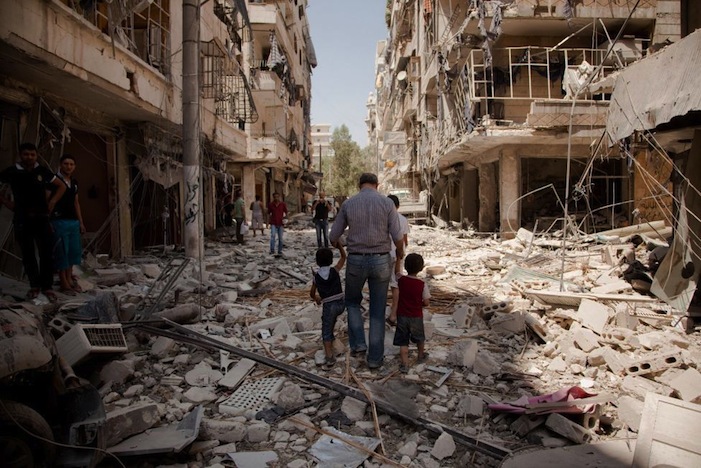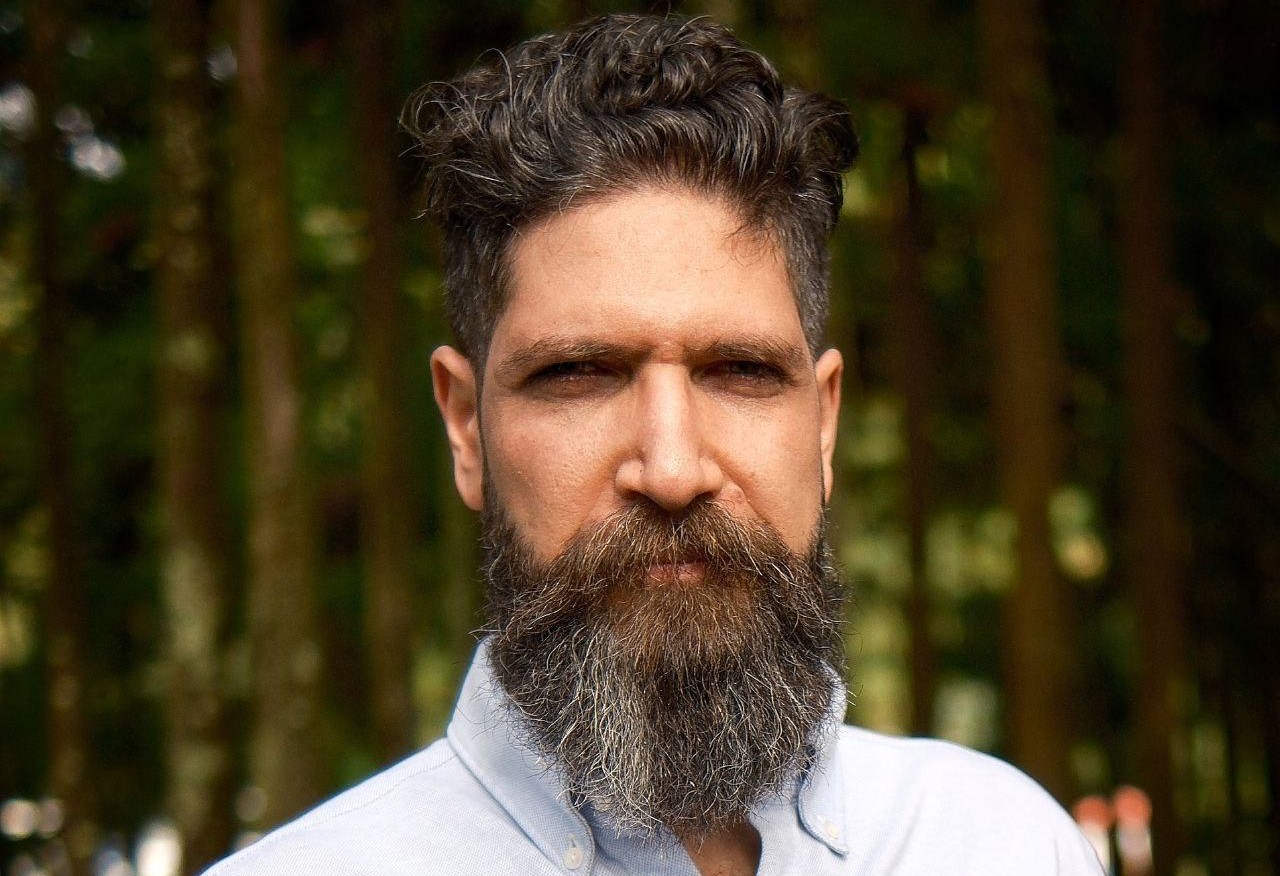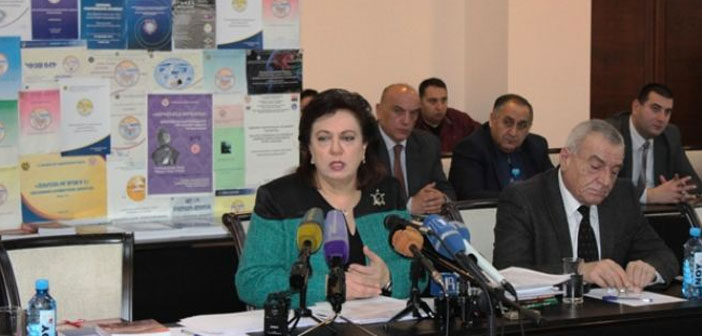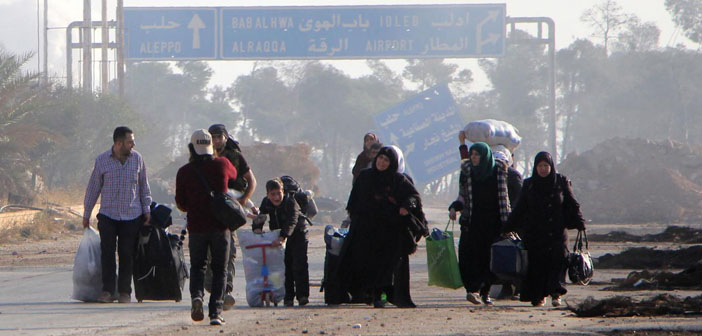There are Aleppo Armenians who stay there; they are resisting and struggling for their lives… Maybe they have to stay there, though they would prefer to leave; maybe they don’t have anywhere else to go or they don’t want to be refugees no matter what…
Aleppo Armenian Community got its share from the destruction that the Syrian Civil War brought and probably, they are going through the hardest time in their history. Having witnessed a history of over 600 years, this community had to make decisions that will change their destiny during last 4 years. On the one hand, the public existence of the community resists while churches, schools, libraries, archives, hospitals, lands and properties of the foundations, cultural centers and sports facilities are under the bombing attacks, and on the other hand, it tries to facilitate the daily lives of the members of the community who still live there. On this point, Aleppo Armenians lead their lives on two levels: as individuals and as a community. On the community level, continuing to live in Aleppo reflects the state of preserving the history, existence, culture and the heritage of the community, but this doesn’t apply to the individual level. As known, tens of thousands of Armenians left Aleppo and migrated to Armenia, Lebanon, Europe, America and Australia. But, who could blame them for leaving Aleppo? After all, some of them have lost their houses, their loved ones got injured or killed and some of them left for saving their children. There are plenty of such cases that we don’t know or cannot comprehend. However, there are Armenians who stay there; they are resisting and struggling for their lives…
Maybe they have to stay there, though they would prefer to leave; maybe they don’t have anywhere else to go or they don’t want to be refugees no matter what… It is estimated that Aleppo Community was consisting of 40-50.000 people before the war. There were 8.000 students. Almost all Armenian students in Aleppo were studying at the Armenian schools; there is no other community in Diaspora that achieved this. And now, there are about 2.500-3.000 students; this means, one third of the community left Aleppo. What do the ones who stayed there think about their community and staying-leaving dichotomy? Maybe, it is futile to ask people, who wander in the city every day in search for water, what they think, but we asked them anyway and they responded. Now, it’s their turn to speak… V.K.
Y.Z. (38)
Continuing to live in Aleppo is now really hard and it requires a great effort. I read this kind of hardships in the books; they were narrated in the novels. I’ve never thought that I will go through such difficulties; not even in my wildest dreams. It is not just about surviving; living like an ordinary human being is the hardest part. I don’t want to exaggerate, but trying to live in Aleppo requires behaving heroically. For me, leaving Aleppo means going to Armenia, but I want to live on this land. I don’t know when I will give up. Really, I am always thinking about this. The current situation of the Armenian communities of Syria indicates that we don’t have a plan as a nation. We hardly manage to think about these matters. You can see on Facebook, only thing they do is putting blame on each other.
H.G. (26)
We continue to live in Aleppo in constant fear. We only need encouragement to overcome this fear. What do I continue to stay in Aleppo? Because I love this city. Let’s say your darling has fallen ill, and this might be a terminal illness, would you leave him? This is how I see my city; me and my city –we suffer the same fate. Would I prefer to leave? No, if they don’t put a sword on my throat. I want to make something clear: don’t make decisions on behalf of us. The people who live here are competent. We are not mentally ill, we can make decisions. We can control our fate and we don’t need anybody to transport us. Everyone has a say in determining their fates and everyone is responsible for themselves. I hope I made myself clear.
M. N. (60)
The life in Aleppo is really hard. Even if you get used to one thing, new challenges emerge every day and then you try to get used to it too. The water is a major problem! If we don’t have problems in finding food and water, and accessing electricity and internet, I guess we can face the bombs and snipers in one way or the other. I have a job in Aleppo; I don’t know what I could do if I leave Aleppo. Maybe, I can do something in Armenia or Beirut, but I will be a refugee in any case and I will be in a situation where I have to ask help from my friends, or request to stay at their houses. This is difficult for me; I rather stay here. My house is not in a very dangerous region. We try to live on with our neighbors (most of them are not Armenians) by helping each other until there is peace. I don’t what I would do if my house were destroyed. Maybe, I will leave then; this happened to most of my acquaintances. They didn’t want to leave, but they had to. However, they will come back, when the war finishes.
T. T. (49)
Living here is nothing but a struggle for surviving. Everything is hard here; from food to security, from protecting the children to providing them with at least manageable conditions… They are going to school and this is my biggest concern. I wish that they wouldn’t go to school, because I want to keep them in sight. Now, every day I worry that something might happen at the school. My son is young and my daughter is older, I don’t if they remember the life they had before the war. I hope that one day they lead a life without war. I want to take them somewhere else. I tried to go to Beirut but I couldn’t have made it. We might go to Armenia. I am waiting to hear from my friends who moved there. They say that it is also hard in Armenia, but we have to go for children. My husband really wants to go. Maybe we will go to Europe from there. I don’t if it amounts to betraying the ones who stay in Aleppo… I guess, we all have to take care of ourselves.





